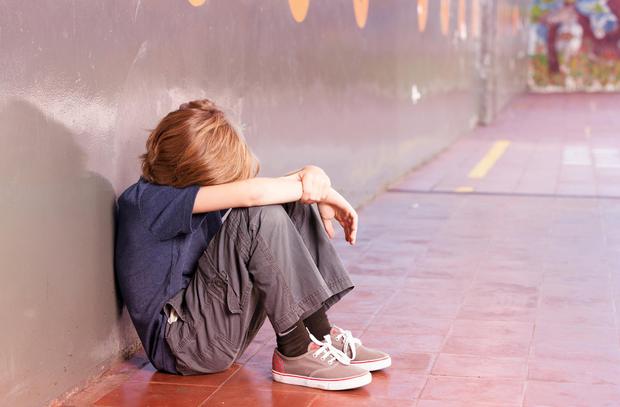
Understanding the Disease of Addiction
Many a time, a family brings their patient to me, explaining how their patient despite the best of their efforts is not able to quit….
When we think of health, we often focus on physical well-being. However, mental health is just as crucial to our overall health. Mental health issues can affect people of all ages, including children. Mental health problems can start at a young age and can have serious consequences if left untreated. In this article, we will explore the question of whether mental health in children is existent and why it’s important to take care of it.

The short answer to the question is yes, mental health in children does exist. In fact, according to the World Health Organization (WHO), one in every four people in the world will be affected by mental or neurological disorders at some point in their lives, and around half of all mental illnesses begin before the age of 14.
Mental health problems in children can take many forms, including anxiety, depression, attention-deficit/hyperactivity disorder (ADHD), and autism spectrum disorder (ASD), among others.
The causes of mental health problems in children can be complex and multifactorial. Genetics, environment, and life experiences can all play a role in the development of mental health issues. For example, children who experience trauma or abuse, have parents with mental health issues or live in poverty may be more susceptible to developing mental health problems. Additionally, certain medical conditions or medications can also contribute to mental health issues in children.
Regardless of the cause, it’s important to take children’s mental health seriously. Mental health problems can have serious consequences for children’s overall health and well-being, as well as their ability to function in daily life. For example, children with untreated mental health problems may have difficulty in school, struggle to form relationships with others, and may engage in risky behaviours. Additionally, untreated mental health problems in childhood can increase the risk of developing mental health issues in adulthood, which can lead to more severe consequences.
So, what can we do to promote children’s mental health? One important step is to raise awareness and reduce the stigma around mental health issues. This can help to normalize seeking help for mental health issues and can encourage parents and caregivers to seek appropriate treatment for their children. Additionally, providing education and resources to parents, caregivers, and children themselves can help prevent and manage mental health problems.
Another important step is to promote healthy lifestyle habits, such as regular exercise, a healthy diet, and adequate sleep. These lifestyle habits have been shown to have a positive impact on mental health and can help to prevent mental health issues from developing or worsening.
Finally, it’s important to seek professional help when necessary. Mental health professionals, such as psychiatrists, psychologists, and licensed therapists, can provide evaluation, diagnosis, and treatment for mental health issues in children. Treatment options may include therapy, medication, or a combination of both.
In conclusion, mental health in children is existent and should be taken seriously. Mental health problems can have serious consequences for children’s overall health and well-being, as well as their ability to function in daily life. It’s important to promote awareness, reduce stigma, promote healthy lifestyle habits, and seek professional help when necessary to care for children’s mental health. By doing so, we can help children to thrive and reach their full potential.

Many a time, a family brings their patient to me, explaining how their patient despite the best of their efforts is not able to quit….

Stress is a functional part of life. Without stress, we might not be able to perform actively…

We all know that exchanging information is communication but are we effective at it? …

In India, it is quite common for us to take care of our parents…
WhatsApp us